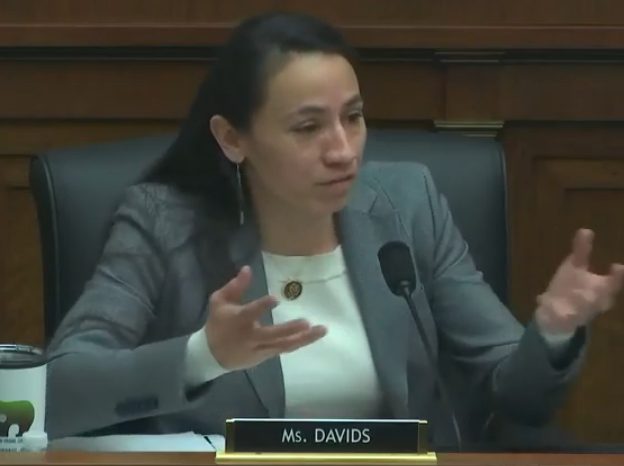
- Details
- By Native News Online Staff
WASHINGTON, D.C. — During the first Congressional hearing on tribal infrastructure since 2002, Rep. Sharice Davids (D-KS-03) on Thursday highlighted the infrastructure needs of Indian Country during a House Committee on Transportation and Infrastructure hearing titled “Assessing the Transportation Needs of Tribes, Federal Land Management Agencies, and U.S. Territories.”
“For far too long, the voices of Native Americans have been woefully underrepresented in Congress. Issues affecting tribal communities have routinely been minimized and ignored. It’s my hope that our committee can serve as a proving ground for the greater inclusion of tribal voices in federal policy this congress and that tribes can be regularly consulted on national infrastructure issues. Today’s hearing is just the beginning of that effort,” said Davids.
Davids urged the Transportation and Infrastructure Committee to keep the priorities of tribal communities in mind while developing its legislative agenda in a letter sent to committee leadership last year.
To view Davids’ remarks during the hearing, watch here at 2:19:51. To view the full text of Davids’ letter, click here.
More Stories Like This
Native News Weekly (August 25, 2024): D.C. BriefsNavajo Nation Mourns the Passing of Former Vice President Rex Lee Jim
Deb Haaland Earns Endorsement From Communications Workers of America Local 7076
University Soccer Standout Leads by Example
Two Native Americans Named to Democratic Congressional Campaign Committee's“Red to Blue” Program
Help us defend tribal sovereignty.
At Native News Online, our mission is rooted in telling the stories that strengthen sovereignty and uplift Indigenous voices — not just at year’s end, but every single day.
Because of your generosity last year, we were able to keep our reporters on the ground in tribal communities, at national gatherings and in the halls of Congress — covering the issues that matter most to Indian Country: sovereignty, culture, education, health and economic opportunity.
That support sustained us through a tough year in 2025. Now, as we look to the year ahead, we need your help right now to ensure warrior journalism remains strong — reporting that defends tribal sovereignty, amplifies Native truth, and holds power accountable.
 The stakes couldn't be higher. Your support keeps Native voices heard, Native stories told and Native sovereignty defended.
The stakes couldn't be higher. Your support keeps Native voices heard, Native stories told and Native sovereignty defended.
Stand with Warrior Journalism today.
Levi Rickert (Potawatomi), Editor & Publisher

